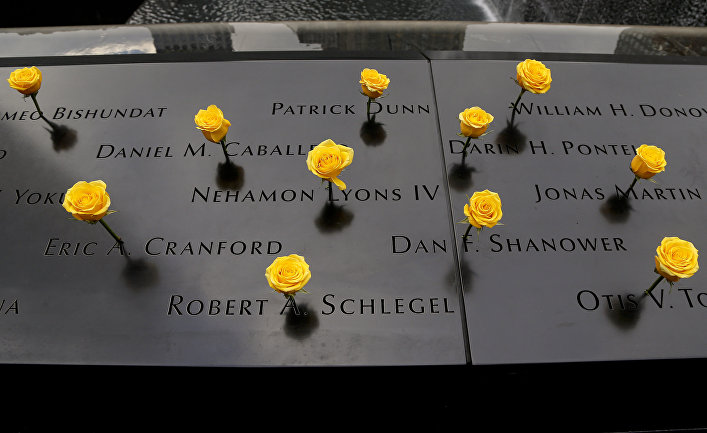The terror attacks in Paris have provided a reason for an official explanation of the military operations in the Middle East, which can be compared with the NATO campaign in Afghanistan after the events of 11 September 2001. The Paris attacks very closely resemble the scenario in New York – except that they took place in France, and the retaliation to them is being unleashed in areas of Syria and the northern regions of Iraq.
Experts involved in monitoring international relations, particularly in Syria and Iraq will have noted that the terror attacks in Paris were swiftly followed by stepped-up military attacks in Syria and northern Iraq. The current situation is that the Paris attacks are assessed not only in discussions about the activity of spy networks and their intrusion into the principled private lives of the West; but also a criticism of what Israel is doing on the West Bank of the River Jordan and eastern sections of Jerusalem; a study of how the operation of the Chilcot report – into Britain's role in the Iraq War — has been temporarily halted; and similarly about the protests over the increasing Western military presence in Syria and Iraq (and indeed, practically any other country too).
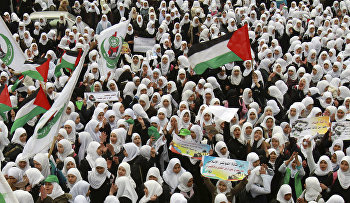
In the November 13 attacks in Paris — which killed more than 150 people — the Western media has continuously blamed the Islamic State. Without a detailed examination of whether ISIL was really behind these attacks, or if they were organized by others, the media alignment against this terror group might in fact result in very different consequences for both France itself, and for NATO overall.
One of the terrorists who committed the Paris attacks did so whilst shouting “For Syria!” We also know that ISIL claimed responsibility for the attacks. Even so, it is worth considering how the attacks were truly connected with Syria. It's still too early to attribute the attacks to any particular group. However, going on the basis of the experience of recent years, we can quickly reach the conclusion that if the media is following a particular line, then all attempts at an investigation to establish the facts will swiftly be swept aside. As things stand at present, the public is invited to take its pick from the flood of speculation and assumption on offer, and all material published on the subject is compromised by the sin of exaggeration.
Turkey arrests suspected #ISIS 'scout' involved in #ParisAttacks https://t.co/X08O6EtgzO pic.twitter.com/D6ZX4knUKW
— RT (@RT_com) November 21, 2015
Western media, and particular the media corporations of the USA, are already pumping out the news that the attacks were organized by the Islamic State. Not only that, they are now actively discussing what punishment should be meted out to ISIL members located in Syria and Iraq. From the point of view of public opinion, it's hard to manipulate this stream of information – although we would certainly like to seek an objective investigation carried out into what really happened in Paris. Even so, and though this may be what we hope for, it's very likely that it will never happen.
NATO's leader, commanders and strategists are now actively planning their emergency meetings in preparation for the organization’s sessions in Europe and the USA. If we bear in mind that France now has a state of emergency, and we comb the text of special laws adopted after the attacks took place, we could even pin the blame for the attacks on President Hollande himself, who was at the Stade de France stadium watching the match between the French and German teams.
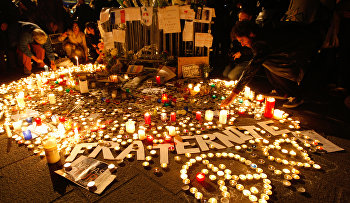
France decided to close its borders, and sent troops out into the city streets. It all confirms the announcement of a state of emergency, and if the French Cabinet of Ministers — in the 12 days it has at its disposal — decides to endorse this law at its next sitting, then it will kickstart the operation of the NATO Treaty. It's true, because if an attack is made upon any member of the North-Atlantic Treaty Organization, the other members may come to that nation's defense and formally retaliate in the form of a coalition – and thus that retaliation ought to be directed at Syria.
What is unclear is that, roughly a week ago, the French aircraft carrier 'Charles de Gaulle' set off for the Mediterranean coasts of Syria – in order to provide, according to official information, air strikes supporting the anti-ISIL coalition in Iraq. It all turns out that the pieces of the jigsaw had all been laid in place next to each other in advance – and from this point of view, it's really remarkable that the Paris attacks happened at exactly the right time. It's safe to say that there is someone actively coordinating these events. Moreover, if we take a geopolitical view of the situation, and factor in NATO's involvement in the situation, then we can fairly much say that the situation isn't being being organized by ISIL.
Off Message: The five ways U.S. politics changed after Paris https://t.co/128iSLwEEL | Getty pic.twitter.com/k5rcTQPzSp
— POLITICO (@politico) November 21, 2015
NATO's involvement may very well lead to a stand-off with Russia over the use of airspace. A no-fly zone will probably be the topic of talks in the very near future. Britain has made great efforts to ensure internal control of the bombing of Syria – and perhaps it's a scenario that it will be able to realize after 16 November. Naturally, during the extended period of mourning which France has announced throughout the entire country, public attention will be entirely directed at the tragedy which took place. Once a reasonable time has passed, public outcry over the so-called 'refugee crisis' will be even greater. And yet the actual responsibility for that crisis lies in the interventions of NATO and Western nations in the affairs of nations such as Libya, Syria, Afghanistan and Iraq – in addition to the western policy of destabilizing the internal politics of these nations.
What took place in Paris might be described as a 'perfect storm' from the public opinion viewpoint — with increasing pressure among the public and emerging enmity between differing ethnic and religious groups, as a continuation of the events which began with the attack on the editorial offices of Charlie Hebdo. Meanwhile we are watching the Russian operations in Syria, while American Republic Party presidential candidates vie to take the most hardline position on military action in Syria, putting troops on the ground there, and establishing a no-fly zone. Taken together, this all makes the international situation even more fraught. Of course, over the next few days we will find out the details of how the scenario will play out – yet we already know what result will follow them, and it will certainly not be a good one.
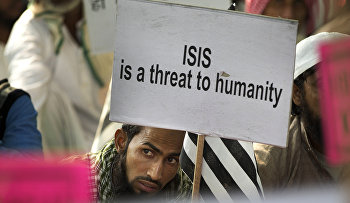
One result of the Paris attacks has been a considerable up-tick in the bluster of patriotic and pro-nationalist rhetoric in European countries – not only France, but most especially in Germany. What we are now seeing is that varying activist groups are consolidating their positions around the issue of the refugee crisis and their opposition to it, plus the allied question of keeping Europe's borders open to the refugees. It seems certain we will now see action from such groups intensifying, as their demands evolve into something more similar to ultimatums. As we write, the representatives of such factions are becoming involved in public discussion on many issues. It could be that while their position remains less strong, their involvements in such discussions is welcome. The fact remains that in times of crisis, both America and its allies in Western Europe see their continued existence threatened by terrorist actions, and militarism – previously thought of as manifestation of far-right-wing opinion – has now become one of the principle areas of public discussion.
One result of these discussions is certain to be heightened demands for compulsory ID cards for all citizens, containing biometric personal data. There's every likelihood that we will definitely hear this demand from the British Home Office (the British ministry of internal affairs), or from the European Union. The Schengen Agreement, along with freedom of movement between EU countries, will be torn up. These aspects of policy will be discussed at national level, although Britain has already been flaky about its membership of the EU for several years. This all seems further evidence that a 'perfect storm' has really taken place.
Will #Germany and the #UK honor their commitment to migrants?: https://t.co/ugjIiHdjzU pic.twitter.com/sPeP9QjAwG
— Al Arabiya English (@AlArabiya_Eng) November 21, 2015
A further issue, which has not had very much public discussion, is how the recent events will play out in regard to the Public Inquiry in the United Kingdom about the causes of the war in Iraq. The Chilcot Inquiry will be focusing its attention on the guilty role of Britain's former Prime-Minister, Tony Blair, in leading his nation into this war. As history has long proved, there will now be a period in which niceties about democratic rights will be put on the back boiler, along with discussions of how various nations are involved in espionage activities.
One of the consequences of the relocation of terrorists from Libya, Syria and the Middle East to the heart of Europe is the appearance in the Old War of various levels of disagreement about the best kinds of solution for this crisis. Each national government has its own ideas about how it can be resolved. Various countries have closed their borders for particular periods – but for European countries this is a problem fraught with difficulty. The policy contradictions which such decisions cause between two neighboring nations such as Croatia and Hungary demonstrate how the overall picture would look in microcosm. In all reality, Europe's borders can't be closed to columns of refugees. Europeans have never been able to do it, in all their years of history. More likely, the result of the present crisis is that they will try to cook up some kind of political fudge. This means we see Europe caught in a classic Hegelian dilemma – 'problem – reaction – solution'.
Gaddafi, May 2011 as #Libya was being bombed by NATO and France+US+UK armed jihadis: https://t.co/MBmcJEvfdz pic.twitter.com/tSeqeBsKQp
— WikiLeaks (@wikileaks) November 19, 2015
The best that can be said is that it provides a way to let off steam over the pent-up angers of military engagement in the Middle East. Government officials declare themselves unable to close the doors to migrants – while simultaneously bombing the ISIL locations in Syria that prompts the flow of refugees. It turns out that Europe is unable to staunch the inflow of migrants. The tensions between ultra-right-wing groups in Sweden and refugee support centers in countries like Sweden is inevitable, and only likely to get worse in future.
The ongoing crisis will now become an official justification for the military campaigns being waged in the Middle East. This is a question of special significance, and its nature recalls the NATO operations conducted against Al-Qaeda after September 11, 2001. America was not attacked by any kind of official Afghan government force. Yet this nevertheless gave America justification to invade Afghanistan for 15 years, occupying the country and exposing it to continuous bombardment. These might be the lines along which the present crisis develops. This time, however, the attacks have taken place in France, and the retaliatory strikes are going on in particular areas of Syria and northern Iraq. It really needs professionals to take a close look at what is actually going on.
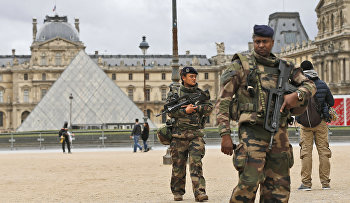
In the past we saw how Russia and the USA fell into disagreement on the topic of solving the ISIL problem. As many world leaders have been lining up to offer their condolences to France over the Paris terror attacks, perhaps at last Russia and the USA — along with other nations — can somehow let bygones be bygones, and learn to work together to defeat the Islamic State? Nevertheless, if we take into consideration previous statements made by Washington officials – particularly after the recent UN General Assembly, and the onset of Russian military operations in Syria at the behest of the Syrian government of Bashar al-Assad – we can clearly see incendiary accusations made against Russia by the United States, along with attempts to isolate Russia as an enemy. Military spokespersons of both the American parties are keen to rattle their sabres at Russia over its support of Syria, seeking to establish a no-fly zone in some northeastern sections of the country, including the province of Rakka.
This is a decision a great many politicians hope for. The international pro-Israeli and non-Israeli lobbies alike are spending vast amounts of money to promote these military objectives. This is the current political scenario in the United States. If we look at this problem from the UN viewpoint, then it's something that needs to be solved in collaborative effort by numerous world nations. They would need to give careful thought about how to deal with American politicians who are foaming to dispatch large troop detachments to Syria and northern Iraq in furtherance of aggressive USA policies. They would also need to keep a close eye on Turkey, which is seeking a NATO role similar to that of France, Britain and the Netherlands, to play a more active role in the Syrian conflict.
If all these countries take part in a war in Syria, then the situation will be extremely grave. Each seeks to establish its own flight zones, and this would lay the foundations for a highly dangerous situation.
